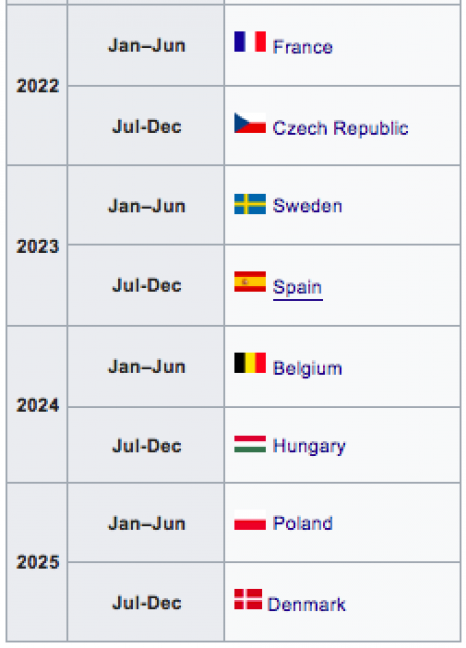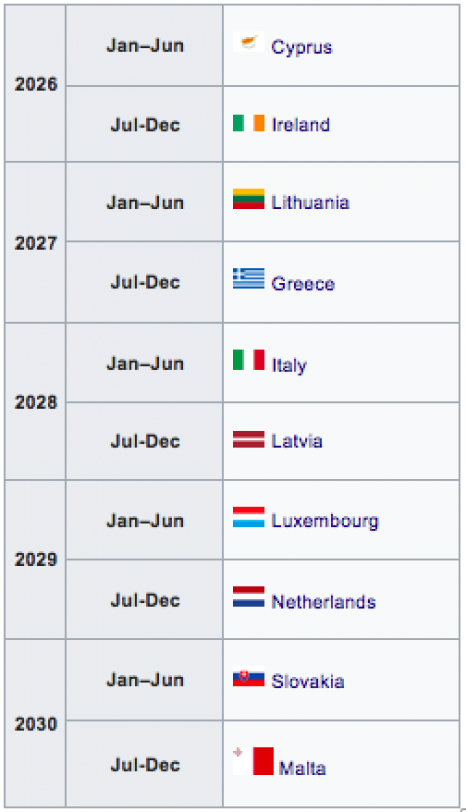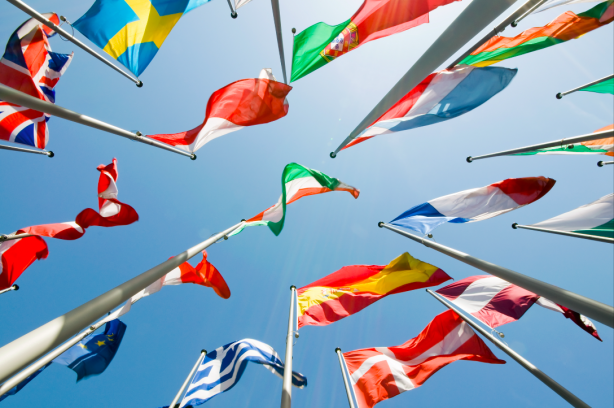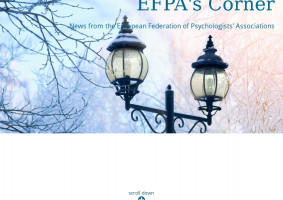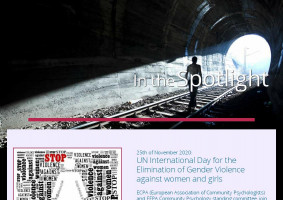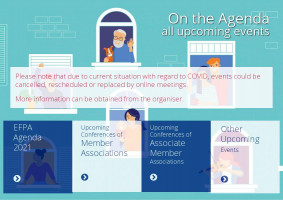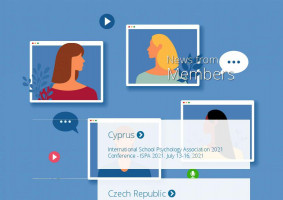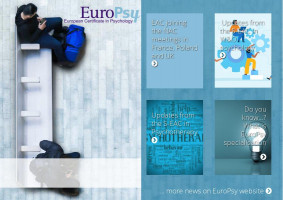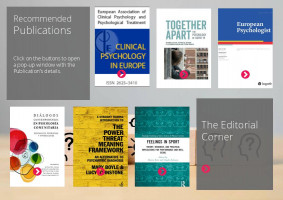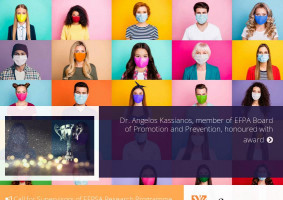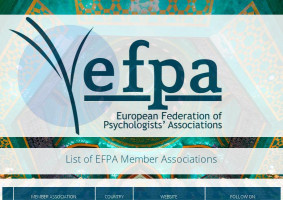_w524_h182_1.png)
RECOVER-E in Montenegro’s media
An important feature of this model, unique in Europe, is the inclusion of peer workers in the daily work with service users. Peer workers are people without formal education in the field of mental health but with experience of previous treatment and rehabilitation of severe mental illness.
The RECOVER-E team in Montenegro brought the RECOVER-E project to the local public on a radio show and in a daily paper. A peer worker and a social worker of the team in Montenegro were invited as a guest to talk on a local radio show about their experiences working in the RECOVER-E team and the project. The radio show can be re-listened here, please note it is in Montenegrin.
Additionally, a 2-page article was published in the daily paper Dnevne novine titled (translated) “Home treatment for a better quality of life and a faster recovery of critically ill patients’’. The article discussed several aspects of the RECOVER-E project.
The article starts by explaining when RECOVER-E started and how the model of community treatment provides a better quality of life for service users through better rehabilitation and resocialization in society, or in other words: a better recovery. The article touched upon the funding of the project, the roles of different partners in the project, and in which other countries the project is implemented. It then moved to discuss how severe mental illnesses, such as psychotic disorders and severe forms of depression, are in many ways the most demanding category, especially when there is an additional addiction disease such as alcohol or drug abuse. Followed by this, the different research phases were discussed in more detail. Furthermore, the unique involvement of peer workers was highlighted.
_w394_h136_1.png)
Recover-E - European Health Forum Gastein
30 Sep - 2 Oct, 2020:
Mitigating COVID-19’s impact on health inequalities (YouTube)
EHFG Report Trimbos (in Dutch)
_w278_h340_1.jpg)
H-WORK: happy new year!
by Luca Pietrantoni, project coordinator, UNIBO
Happy new year!
The year 2020 has been really unique. The Covid-19 crisis raised awareness about our health and highlighted the need for a healthy and safe working environment. Indeed, this unfortunate year has triggered a tremendous response from European governments with a series of significant actions to support their economies, companies in the various sectors affected by the pandemic, and individual citizens.
-
As European Commissioner Stella Kryakides mentioned, the harmful effects of the pandemic on the mental health of all of us need to be addressed. Although we cannot yet assess the risk, we know that the long-term impacts will be significant. Impacts generally fall into three categories:
Directly caused by the pandemic, such as anxiety or fears; indirectly triggered by government measures implemented, such as isolation and social distancing; and indirectly caused by socio-economic effects and fallout, such as the effects of being forced to accept unemployment benefits for months at a time. Stressors such as pandemic-related threats and trauma, such as viral exposure, witnessing deaths, limited mobility and economic loss, are all factors that may increase the risk of mental disorders. We also need to understand the economic impact of mental health costs that is mainly due to the high number of mental health cases among the working-age population.
In the pre-pandemic world, the impact of mental health in the EU was already relevant, affecting at least 1 in 6 individuals diagnosed with a mental health problem and costing 4% of the EU’s total GDP. It is easy to expect that the need for support and advocacy for promoting mental health and psychosocial wellbeing will increase substantially in the coming months.
Mental health in the workplace will become a growing priority at national and international level. Organizations will seek support to assist their employees and management with tools and intervention methodologies to promote resilience and health. Most importantly, given the pandemic’s impact, the use of digital solutions will be a key aspect. According to PitchBook, the COVID-19 pandemic has significantly boosted investment in mental health technology start-ups. Ten years ago, investment in mental health technologies was worth €5 million, last year it reached the €1.3 billion mark.
Digitalization offers novel opportunities and challenges but to protect employees and employers, we need to ensure that all people at risk can have access to these services. The exponential incorporation of technology into our daily lives has induced extensive alterations in the way we communicate and work.
I am grateful to all H-WORK partner for their great job in the theoretical and methodological preparation. We successfully designed the H-WORK Protocols, conducted interviews with managers and supervisors, employee representatives and employees themselves. Now the partners are ready to undertake actions at the various intervention sites that will last throughout 2021. We will start at the end of January with the baseline data collection, which sets the starting point from which we will monitor our interventions’ effectiveness.
The old year has been heavy and never before we are looking to the future with great expectancy, hope, eager to see what we will achieve in 2021!
Happy New Year and good work to all!
Prof. Luca Pietrantoni.
Call for consultation on active ageing
and contribution for the green paper on ageing population.On 27 January 2021, the European Commission presented a green paper to launch a broad policy debate on the challenges and opportunities of Europe's ageing society. It sets out the impact of this pronounced demographic trend across our economy and society and invites the public to express their views on how to respond to this in a public consultation, which will run from 27 January 2021 to 21 April 2021.
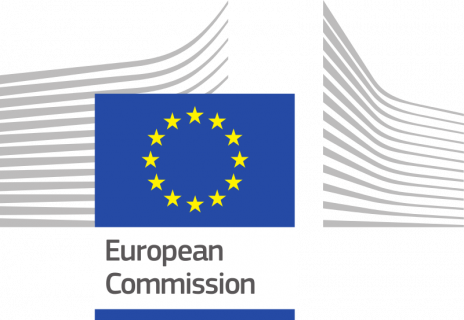
MHE Statement about Portuguese Presidency:
Portuguese Presidency to the Council of the EU:
opportunity to make mental health a priority.On the 1st of January 2021, Portugal took over the Presidency of the Council of the European Union (EU). The Presidency rotates every six months among EU Member States and is responsible for implementing the Council’s work on EU legislation and policy initiatives.
The motto of the Portuguese Presidency is “Time to deliver: a fair, green and digital recovery,” and it focuses its priorities on three areas:
- Recovery through climate and digital transition;
- The European Pillar of Social Rights; and
- EU’s autonomy in the world.
As the COVID-19 pandemic continues to be a significant challenge for EU Member States and the EU itself, the Portuguese Presidency aims to implement the Multiannual Financial Framework and the Next Generation EU to promote recovery as well as approving and executing the National Recovery and Resilience Plans. Following the European Commission’s commitment to building a European Health Union, the Portuguese Presidency will develop the European framework for action on health to create said Union and enhance the cooperation between EU Member States.
Press release by the Council of the European Union
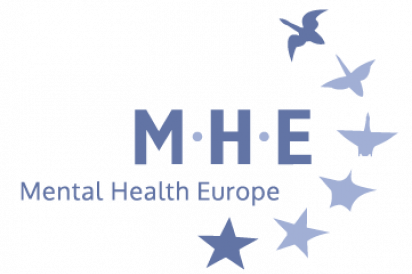
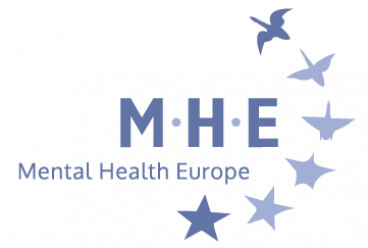
MHE publishes German Presidency Scorecard
Mental Health Europe (MHE) released a Scorecard measuring performance of the German Presidency of the Council of the European Union (July-December 2020) in relation to mental health and human rights.
How successful was the German Presidency in terms of mental health & human rights?
The German EU Presidency was largely overshadowed by the outbreak of the Covid-19 pandemic, fittingly the Presidency’s motto titled “Together for Europe’s Recovery.”
The German Presidency was met with great expectations, concluding the year with an agreement on the United Kingdom’s withdrawal from the European Union and the development and finalisation of EU’s Multi-annual Financial Framework, including the EU Recovery Program (Next Generation EU), to be tied to a rule of law mechanism.
While the German Presidency swiftly reacted in some related issues, for example, the European coordination of Covid-19 vaccine distribution, it did not adequately respond to the concerning findings of the pandemic on mental health and well-being.
The prominent representation of mental health in the final EU4Health programme could be a silver lining moving towards “post-pandemic futures.”What is the Score card about?
To engage with and analyse the performance of the rotating Presidency of the Council of the European Union (EU), Mental Health Europe has devised a scorecard system through which we evaluate each Presidency’s commitment to and promotion of mental health. The performance of each Presidency is rated based on the following criteria:- Promotion of mental health and well-being,
- Commitment to the rights of persons with psychosocial disabilities,
- The involvement and empowerment of users of mental health services.
Brexit:
Recognition of professional qualifications
Find here updates regarding the negotiations between the EU and UK:
Additional draft text for the Agreement on the New Partnership with the United Kingdom 7 September 2020 (recognition of professional qualifications). EFPA will keep you informed on this matter.
This document is the European Union's (EU) proposal for the EU-UK FTA. It has been tabled for discussion withthe UK. The actual text in the final agreement will be a result of negotiations between the EU and the UK.
Blogs & newsletters
Here is a list of interesting blogs to follow and newsletters to subscribe to:
Clinical Psychology in Europe
Health and Care Professions Council (UK)
European Commission Public Health-EU: e-newsletter
International Association of Medical Regulatory Authorities (IAMRA)
European Parliament IMCO (Internal Market Committee)
United Kingdom: Professional Standards Authority (UK)
European Social Network ESN
Ireland: CORU Regulating Health + Social Care Professionals (Ireland)
Healthcare Professionals Crossing Borders HPCB
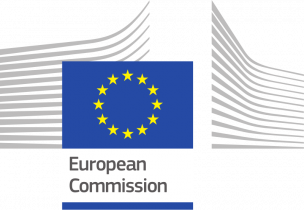
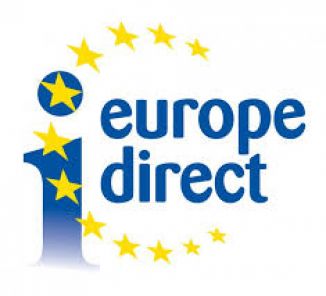
In person:
All over the European Union there are hundreds of Europe Direct information centres. You can find the address of the centre nearest you at: https://europa.eu/european-union/contact_enOn the phone or by email:
Europe Direct is a service that answers your questions about the European Union. You can contact this service:
by freephone: 00 800 6 7 8 9 10 11 (some operators may charge for these calls),
at the following standard number: +32 22999696 or
by email via: https://europa.eu/european-union/contact_en
EU publications
You can download or order free and priced EU publications here Multiple copies of free publications may be obtained by contacting Europe Direct or your local information centre

EU law and related documents
For access to legal information from the EU, including all EU law since 1952 in all the official language versions, go to EUR-Lex at:
http://eur-lex.europa.eu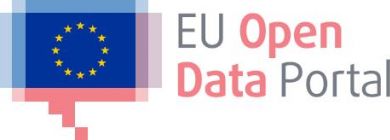
Open data from the EU
The EU Open Data Portal ( http://data.europa.eu/euodp/en)
provides access to datasets from the EU. Data can be downloaded and reused for free, for both commercial and non-commercial purposes.(1)(1)_w466_h178_1.png)
